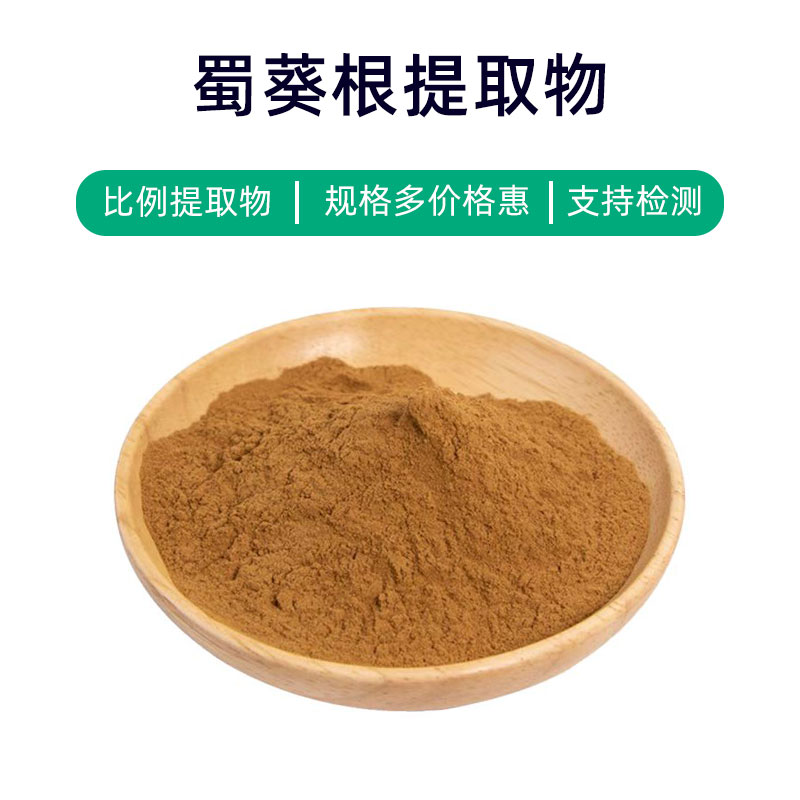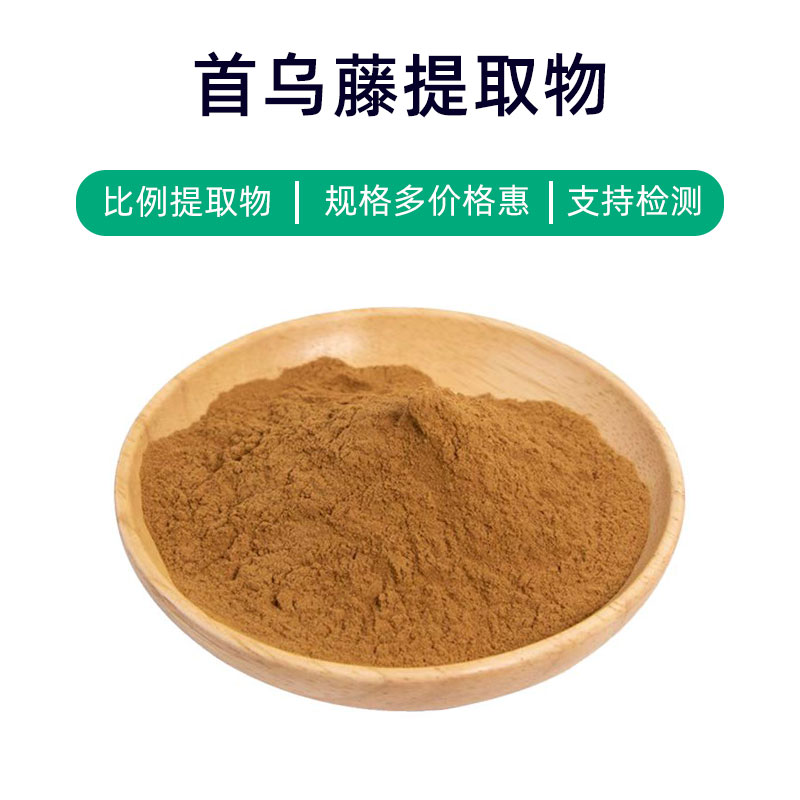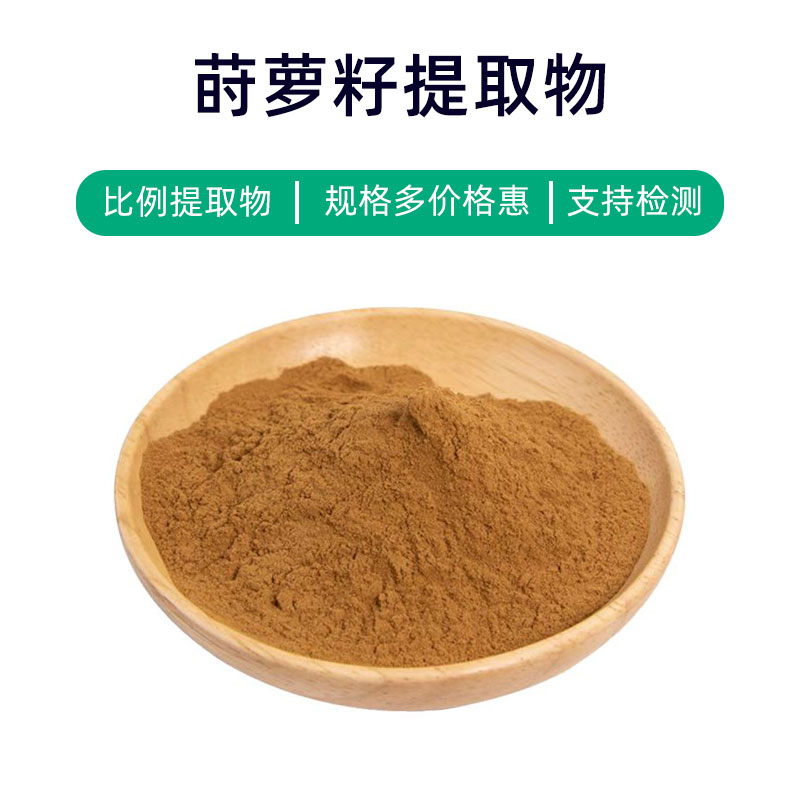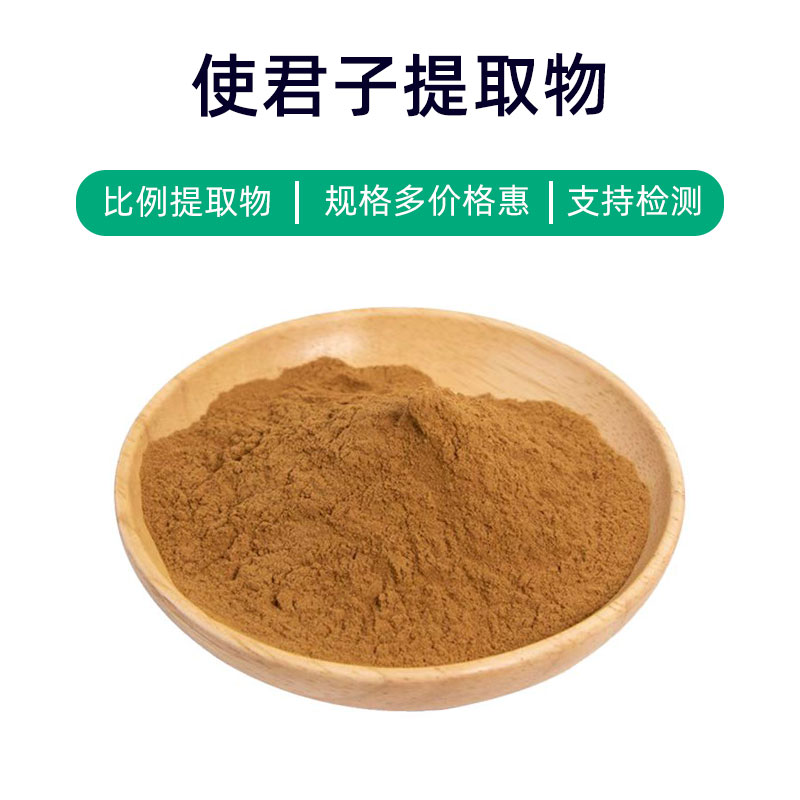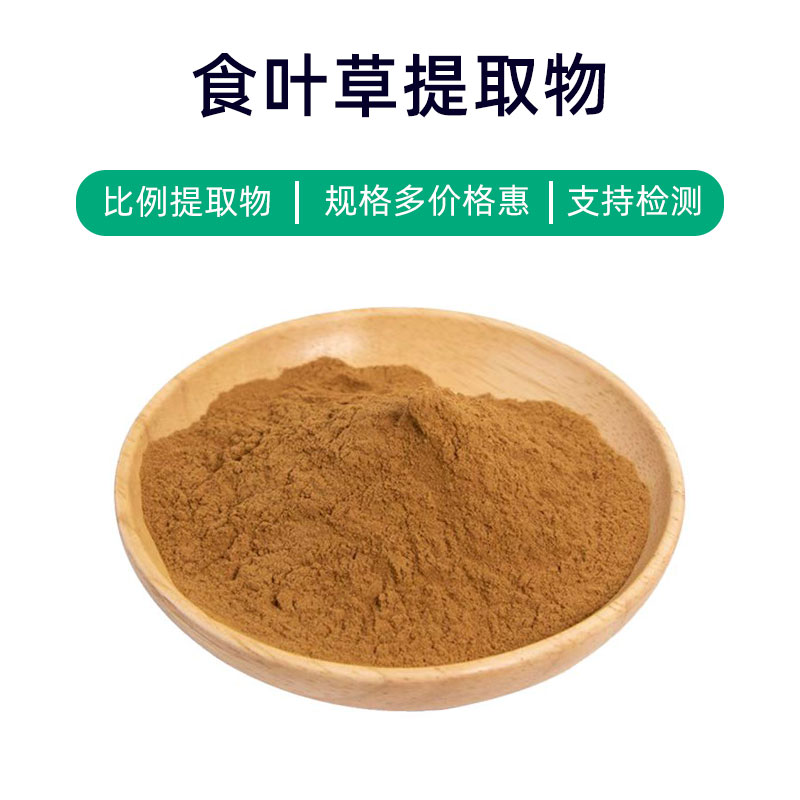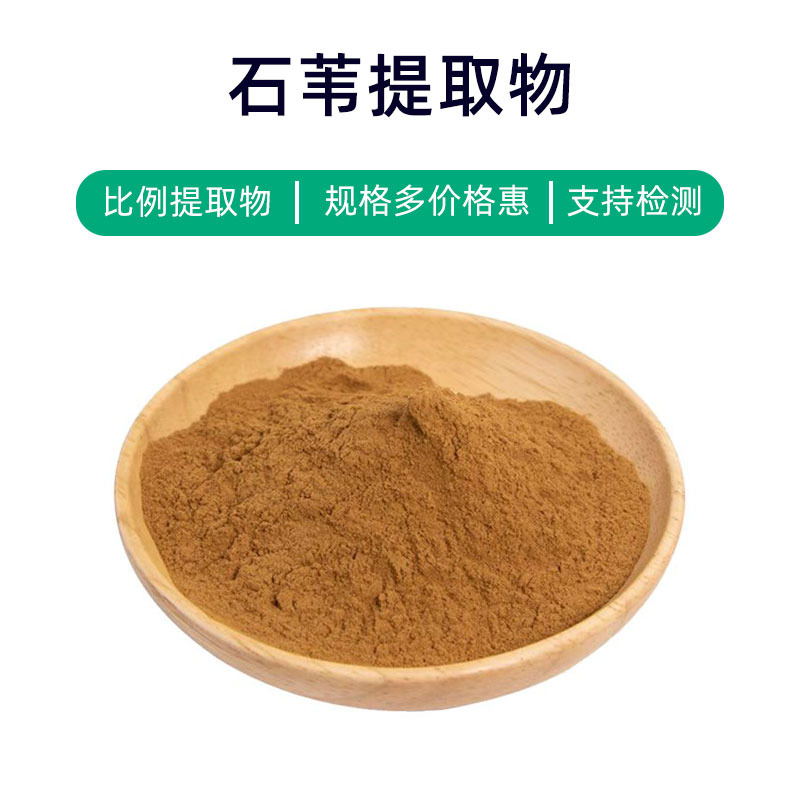Persimmon Peel Extract Product Introduction
Persimmon peel extract is a natural plant extract derived from the fruit peel of the persimmon, primarily composed of active ingredients including abundant tannins, polyphenols, and vitamin C. These components grant the extract various effects and applications.
First, persimmon peel extract is rich in tannins, which have astringent and anti-inflammatory properties, helping to condition the skin, tighten pores, and reduce excess oil secretion, making it a common ingredient in many cosmetics. Additionally, the polyphenols present exhibit strong antioxidant properties that can neutralize free radicals, slow down skin aging, and reduce pigmentation, contributing to whitening and anti-wrinkle effects. Furthermore, the vitamin C content in persimmon peel extract promotes collagen synthesis, enhances skin elasticity, and improves skin firmness and radiance.
In the pharmaceutical field, persimmon peel extract is used to prepare antioxidants, anti-inflammatory agents, and antimicrobials for treating skin issues like inflammation, eczema, and acne. In the food industry, it can act as a natural colorant and preservative, enhancing food freshness and appearance. In the health supplement sector, persimmon peel extract is formulated into oral supplements to boost immunity, provide antioxidant benefits, and support digestive health.
Overall, persimmon peel extract is a multifunctional natural plant extract with antioxidant, anti-inflammatory, whitening, and anti-wrinkle effects, and it has vast application potential in pharmaceuticals, cosmetics, food, and health supplements.
Persimmon Peel Extract Production Process
The production process of persimmon peel extract typically includes the following steps:
- Raw Material Preparation: Select fresh, ripe persimmons as raw materials. Clean and peel the persimmons, retaining only the fruit peel.
- Grinding: Grind or crush the cleaned persimmon peel to increase extraction efficiency and surface area for the subsequent extraction step.
- Extraction: Use appropriate extraction methods like water extraction, ethanol extraction, or supercritical fluid extraction to extract the active components from the persimmon peel. The extraction conditions need to control parameters such as temperature, time, and solvent concentration to ensure optimal extraction and product quality.
- Concentration: Concentrate the extract usually through vacuum concentration or spray drying to remove the solvent and obtain concentrated persimmon peel extract.
- Filtration and Purification: Filter and purify the concentrated extract to remove impurities and undesired components to improve the product's purity and stability.
- Drying: Dry the purified extract, usually through methods like spray drying or vacuum drying, to remove moisture, yielding dry persimmon peel extract.
- Crushing and Packaging: Crush and sieve the dry persimmon peel extract to ensure product uniformity and stability. Finally, package the extract in sealed containers to protect against moisture and light, preserving the stability and efficacy of the active components.
The above outlines a typical production process for persimmon peel extract; specific operational steps and parameters may vary according to the manufacturer's processing techniques and equipment.
Effects and Side Effects of Persimmon Peel Extract
Persimmon peel extract, derived from the fruit peel of persimmons, offers multiple benefits and functions:
- Antioxidant Properties: Rich in various natural antioxidants, such as polyphenols and vitamin C, it helps remove free radicals in the body, slowing down oxidative reactions and protecting cells from oxidative damage, which aids in delaying aging.
- Anti-Inflammatory: The active components in persimmon peel extract exhibit significant anti-inflammatory effects, inhibiting the release of inflammatory mediators and alleviating inflammation in various inflammatory diseases.
- Antibacterial Effects: Rich in tannins, persimmon peel extract has notable antibacterial properties, inhibiting the growth of various bacteria and fungi, making it effective for skin inflammation and infections.
- Skin Protection: The polyphenols in the extract enhance the skin's antioxidant capacity, improving moisturization and elasticity, thus addressing issues like dryness and roughness.
- Blood Sugar Regulation: Certain components in persimmon peel extract are believed to help regulate blood sugar levels, potentially aiding in the prevention and treatment of metabolic diseases like diabetes.
- Digestive Improvement: Its high fiber and pectin content promote intestinal motility and increase stool bulk, helping alleviate constipation and maintain digestive health.
- Cardiovascular Health: The polyphenolic compounds in persimmon peel extract can lower cholesterol levels in the blood and reduce lipid accumulation in blood vessels, aiding in the prevention of atherosclerosis and other cardiovascular diseases.
Although persimmon peel extract offers various benefits, it is important to note some potential side effects and precautions:
- Excessive intake may lead to digestive discomfort or diarrhea; hence, follow recommended dosages.
- Individuals allergic to persimmons should avoid using this extract to prevent allergic reactions.
- Pregnant or breastfeeding women, as well as children, should consult a healthcare professional before use.
Overall, persimmon peel extract, as a natural plant extract, has numerous health benefits, but attention should be paid to dosage and suitable populations to avoid adverse reactions.
Applications and Dosage of Persimmon Peel Extract
Persimmon peel extract has wide-ranging applications in pharmaceuticals, food, and cosmetics. The following outlines its usage, dosage, and application scenarios in these fields:
- Pharmaceutical Field:
- Application Scenario: In the pharmaceutical industry, persimmon peel extract is often used to formulate traditional medicine preparations such as persimmon peel granules and capsules, aimed at treating digestive disorders like indigestion, stomach pain, and diarrhea.
- Dosage: Generally, the oral dosage for persimmon peel extract preparations is 2-4 grams per dose, taken three times daily, either before or after meals.
- Food Industry:
- Application Scenario: Used as a natural food additive, persimmon peel extract enhances the nutritional value and flavor of foods, commonly found in jams, juices, and candies.
- Dosage: When used in food processing, it should be added according to the specific needs of food formulations, with a recommended addition of about 0.1%-0.5% of the total weight of the food.
- Cosmetic Field:
- Application Scenario: Persimmon peel extract is frequently incorporated into cosmetics, such as masks, lotions, and toners, providing benefits like antioxidation, moisturizing, and skin brightening, which can improve skin texture and reduce dark spots.
- Dosage: In cosmetics, it is added according to formulation requirements. Users should choose products suited to their skin type, applying 1-2 times daily on clean skin.
In summary, persimmon peel extract is utilized in pharmaceuticals for treating digestive issues with recommended dosages for oral preparations, in the food sector as a food additive with dosage based on formulation needs, and in cosmetics for beauty care with usage instructions as per product guidelines.
Origin, Distribution, and Growth Environment of Persimmon Peel Extract Source Plant
Persimmon peel extract is obtained from the outer layer of the persimmon fruit (scientific name: Diospyros kaki), a widely recognized deciduous tree belonging to the ebony family. Below is an overview of its origin, distribution, and growth conditions:
Origin of the Plant:
The persimmon, also known as the "persimmon tree," is a plant of the ebony family. It is an evergreen or deciduous tree, and its fruit, commonly referred to as persimmons, is a well-known fruit and an important economic timber species. Persimmon trees can reach heights of 10-12 meters, with a rounded or umbrella-shaped crown, gray-brown bark, and sturdy trunks.
Distribution:
Persimmons are native to China, primarily distributed in the regions south of the Yangtze River and north of the Yellow River, including provinces like Shandong, Jiangsu, Anhui, Henan, Hubei, Hunan, Jiangxi, Fujian, Guangdong, and Guangxi. Additionally, persimmons are cultivated extensively in Japan, Korea, and the United States.
Growth Environment:
Persimmons prefer warm, humid climates and sunny environments. They are not strictly demanding in terms of soil but thrive best in loose, fertile soil with good drainage. The optimal growing temperature for persimmon trees is between 15-25 degrees Celsius. They have limited resistance to cold and drought but adapt well to hot and humid conditions. During the growing season, persimmon trees require ample sunlight and adequate moisture; however, prolonged drought and high temperatures can affect fruit quality.
In China, persimmon trees are typically cultivated on slopes, in valleys, around villages, orchards, and along field edges. Due to their strong adaptability, they are cultivated across different regions, becoming an essential economic crop locally.
Processing and Storage of Persimmon Peel Extract
The processing of persimmon peel extract mainly involves the following steps: it starts with the harvesting and sorting of persimmons, selecting those at the right maturity for processing; followed by peeling and pitting the persimmons to separate the outer layer, the persimmon peel; next, the peels undergo soaking and extraction, typically using water or solvent extraction methods; finally, the extract is filtered, concentrated, and dried to obtain pure persimmon peel extract.
Regarding storage, persimmon peel extract should be kept in a dry, cool, and well-ventilated environment, avoiding direct sunlight and moisture. Sealed containers can be used for packaging, and the extract should be stored in light-resistant areas to prevent oxidation and moisture from degrading the extract. Proper storage methods help prolong the shelf life of persimmon peel extract and maintain the stability of its active components.
Monica Sun is a seasoned expert in the plant extraction industry with over a decade of experience in research and production. She specializes in the extraction and purification of plant active ingredients, focusing on driving innovation in natural product applications. Monica has participated in the development of multiple functional plant extracts, delivering high-value natural raw material solutions for the health food, pharmaceutical, and dietary supplement sectors.









